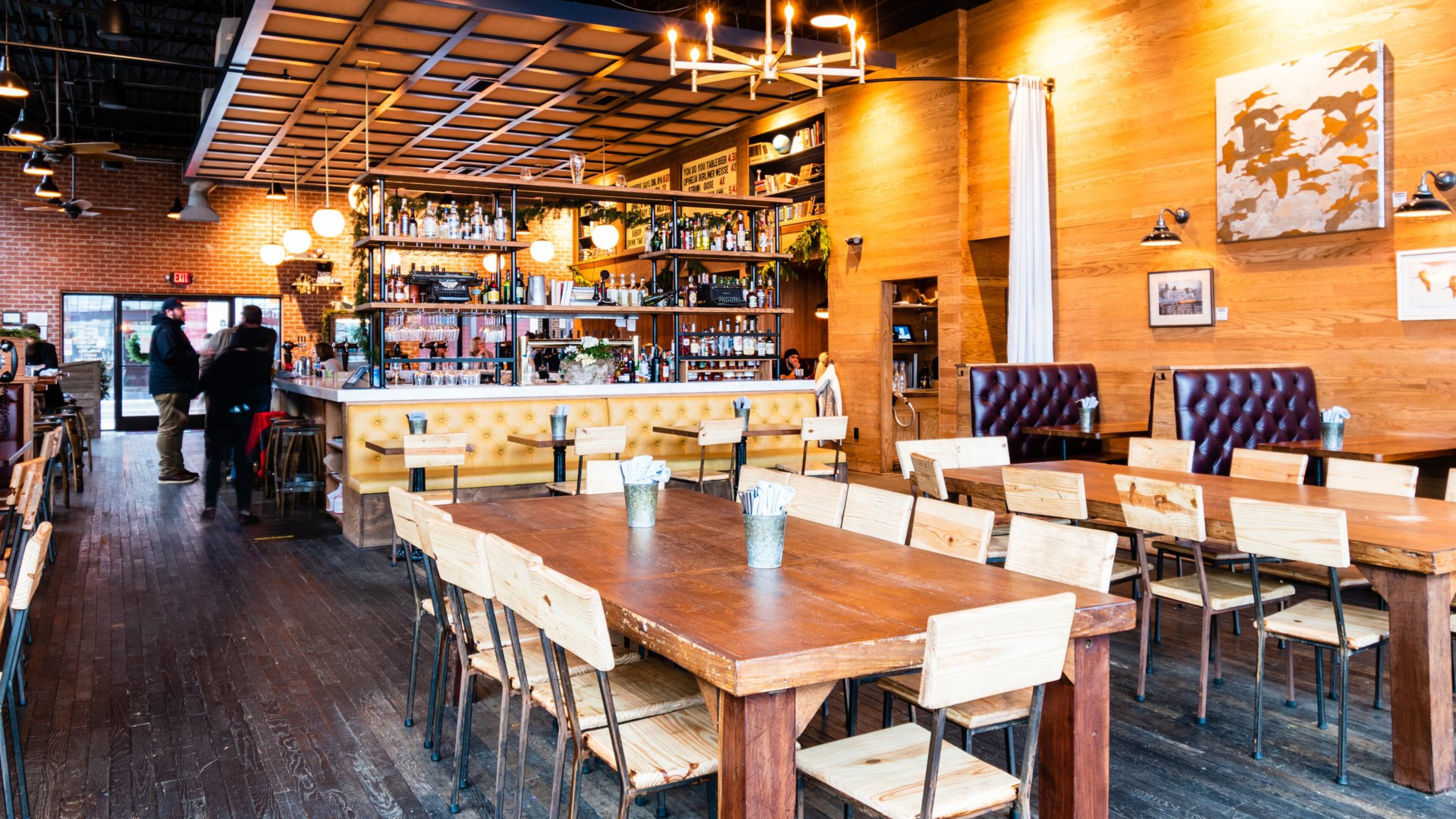Gwinnett restaurants repurposed as soup kitchen, pantry

Two Gwinnett County restaurants have pivoted to help their neighbors after closing to dine-in customers because of the coronavirus pandemic.
Good Word Brewing, a downtown Duluth brewpub, has stopped serving its regular menu altogether. For more than a week, the restaurant has been operating as a soup kitchen for whoever needs a meal. Head brewer Todd DiMatteo has switched from brewmaster to soup master.
READ | Gwinnett closes playgrounds, outdoor sports facilities due to coronavirus
While still serving to-go meals, Universal Joint in downtown Lawrenceville has tried to transform itself into a contactless one-stop shop. Customers can order pounds of ground beef, bags of produce and rolls of toilet paper from the restaurant’s “pantry” alongside takeout orders, family-size meals and to-go beer and wine. Employees load everything into a customer’s trunk or back seat in order to minimize in-person contact.
Restaurants across metro Atlanta have switched to take-out service or closed entirely due to the threat of coronavirus. Good Word Brewing first modified its menu but closed about two weeks ago, once it was clear that the virus was a threat to employees and diners, DiMatteo said.
As restaurants, theaters and other small businesses closed, thousands of people lost their jobs. After reaching out to the Giving Kitchen, a non-profit organization that’s been supporting laid-off restaurant workers, DiMatteo decided to begin providing free meals in Duluth would be a good use of the closed restaurant space.
“There’s a lot of people out there who need food, so let’s feed everybody,” DiMatteo said.

DiMatteo makes two soups a day — one vegetarian or vegan, another with meat — and opens the doors to Good Word Brewing for a few hours. The makeshift soup kitchen operated the first week from noon to 6 p.m., and hours were reduced to noon to 4 p.m. this week as DiMatteo plans to give more soup to local charities.
People and families come to the restaurant and take home cartons of soup to reheat at home. Neighboring businesses have donated other items free to take, including coffee, cookies and banana bread, that are portioned and wrapped to maximize cleanliness and safety, DiMatteo said.
“For us we want to make sure people closest to us are getting fed in whatever small way we can,” DiMatteo said.
Universal Joint, too, had to figure out how to continue feeding customers. They started by closing their dining room and bar and added family-size meals to their takeout options. Owner Bruce Kennedy noticed the large crowds at local grocery stores and thought he could help minimize the need to shop in person by digging into his restaurant’s storerooms.
“What do I have that people want? I have eggs, I have bread, I have poultry, I have tomatoes, red onion, white onion, cilantro…” Kennedy says, listing more than a dozen kinds of produce and meat people usually get at the grocery store, plus toilet paper and paper towels.
Meals, alcohol and pantry items can all be handed over without any direct human contact. They’re packed and put in customers’ cars by gloved employees, and payment is taken over the phone.
Adding the pantry service will help Kennedy keep more employees working, he said.
“I have a bartender here that isn’t tending bar anymore but putting together orders,” Kennedy said. “They’re going to be here and get paid.”
Neither restaurant expects it can do this forever, but both DiMatteo and Kennedy said they want to keep serving their communities as long as they can.
“We have an asset here that is good for the community. You have to choose like every other biz owner, what are you going to do with the asset?” Kennedy said. “Are you going to board it up, close it or are you going to reinvent what you do to adapt to a crisis?”


